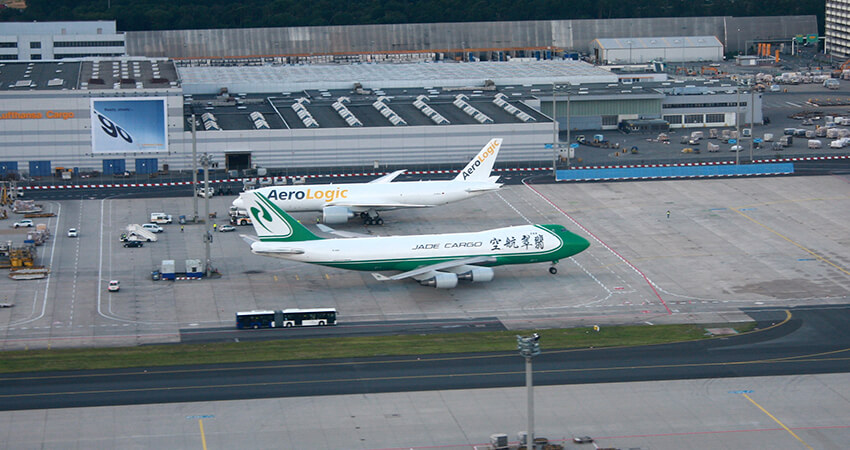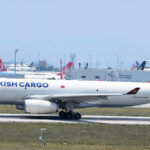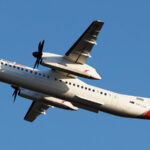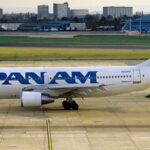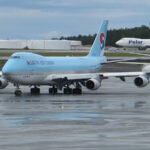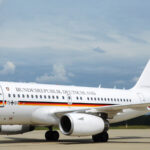Since the beginning of commercial aviation, air cargo transportation in Western Europe has been crucial. With significant importance for global trade, it is one of the most critical regions where a substantial fraction of the world’s trade arrives and departs.
However, over the past two years, the sector has been severely affected across Europe, according to a report by IATA. Although air cargo transportation had managed to approach pre-COVID-19 pandemic levels, the War in Ukraine and the restriction of flights to Russia impacted the activity. Additionally, the closure of airspace in Ukraine also affected the sector.
While this impact was felt predominantly in the East, air cargo transportation in Western Europe also suffered significantly. In fact, IATA explains that it has been the region where all indicators, including transported quantities, flights, and capacity, have dropped the most.
Nevertheless, Europe represents 21% of global air cargo transportation. Just behind North America and the Asia-Pacific, Western Europe and the economic dynamism of the European Union continue to play a crucial role in global trade, with a significant contribution from cargo flights.
The top five airports in Western Europe

According to official statistics from the European Union, Frankfurt Airport is the largest cargo transporter in Europe. In fact, according to the report from the Airports Council International (ACI), this airport ranked 13th globally in 2022.
The activity at Frankfurt Airport is driven by the city’s enormous economic importance. As the financial capital of Germany (and, to a large extent, the European Union), it is one of the most dynamic production centers globally. Its cargo operations, especially those of Lufthansa, connect Germany with almost every corner of the world.
However, in 2022, Frankfurt also experienced a general decline in air cargo transportation, with 1.96 million tons transported. Despite being a substantial number, this represents a 13.5% decrease compared to 2021, although it is close to 2019 levels.
The second position in air cargo transportation in Western Europe is held by Paris, more specifically, Charles De Gaulle Airport, which handles almost all cargo operations. With 1.89 million tons in the year and only a 7.9% reduction compared to 2021, the French capital’s airport approached Frankfurt’s figures.
However, Germany completes the top three. Leipzig took the third spot in 2022, with 1.5 million tons. This city in Eastern Germany weathered the impact of the overall decline in air transportation better and remained in the 19th position globally, losing only 5% of its year-on-year traffic.
In fourth place is Amsterdam, which experienced a 14% drop, according to data published by the European Commission. This reduction, leaving Schiphol with 1.44 million tons, explained how the second German airport surpassed the Netherlands’ terminal, a key player in global trade.
Outside the European Union, London Heathrow Airport solidifies its position as the fifth in air cargo transportation in Western Europe. Airlines operating at this airport transported 1.39 million tons of cargo in 2022. With data updated until November 2023 on its official page, Heathrow has already exceeded its previous year’s data and could improve in the next ranking.
The “small” players in air cargo transportation in Western Europe

Liège Airport in Belgium is the 6th in the region and the 5th in the European Union, just above one million tons of cargo. It suffered the largest drop, with a 20% decrease in goods in 2022 compared to 2021. The next is the small Luxembourg airport, which, with a year-on-year decrease of 10%, fell just below one million tons, at 970,000.
In eighth place, Germany appears again, this time with the Cologne terminal. With 957,000 tons, it showed significant resilience to the traffic decline. The same goes for Milan Malpensa Airport, the 9th on the list and the first in Italy, with 720,000 tons in 2022.
Brussels, with 620,000 tons, takes the 10th place. The Belgian capital, with a 10% decrease in cargo compared to the previous year, joins the overall decline of the Benelux airports.
The Top 20 continues with Madrid Barajas Airport, with 546,000 tons. However, the Spanish airport is the first on the list to experience growth, transporting 13% more in 2022 than in 2023. The list concludes with Munich, Copenhagen, Frankfurt-Hahn, Vienna, Lisbon, Helsinki, Dublin, Barcelona, and Rome Fiumicino.
Germany leads air cargo transportation in Western Europe, with 5 million tons transported in 2022. Collectively, German airports surpass Hong Kong, the primary airport in Asia and the world’s busiest. In the official statistics of the European Union, France follows (2.1 million tons), Belgium (1.8 million tons), the Netherlands (1.5 million tons), and Italy (1 million tons). However, the United Kingdom, with 2.2 million tons according to a report by the UK Civil Aviation Authority, displaces even France and holds the second position in the region.
